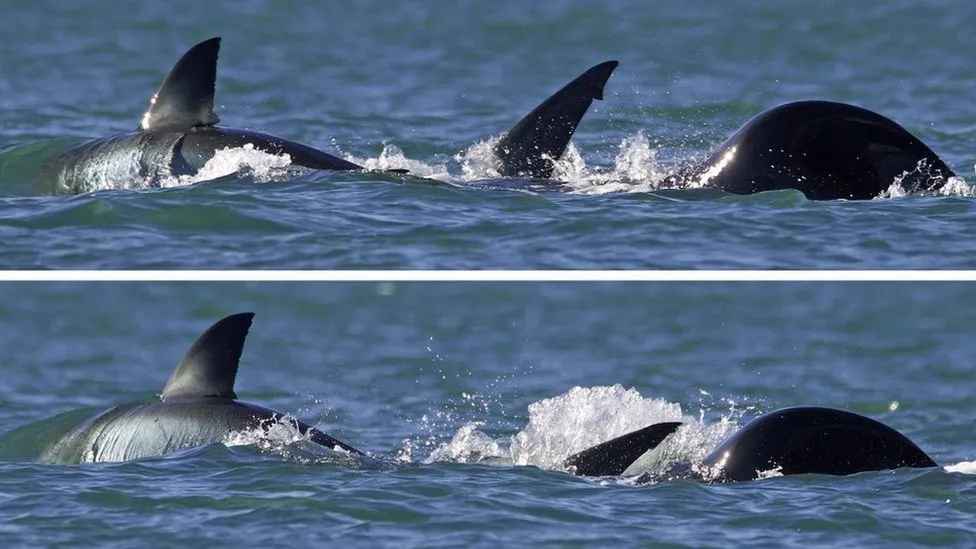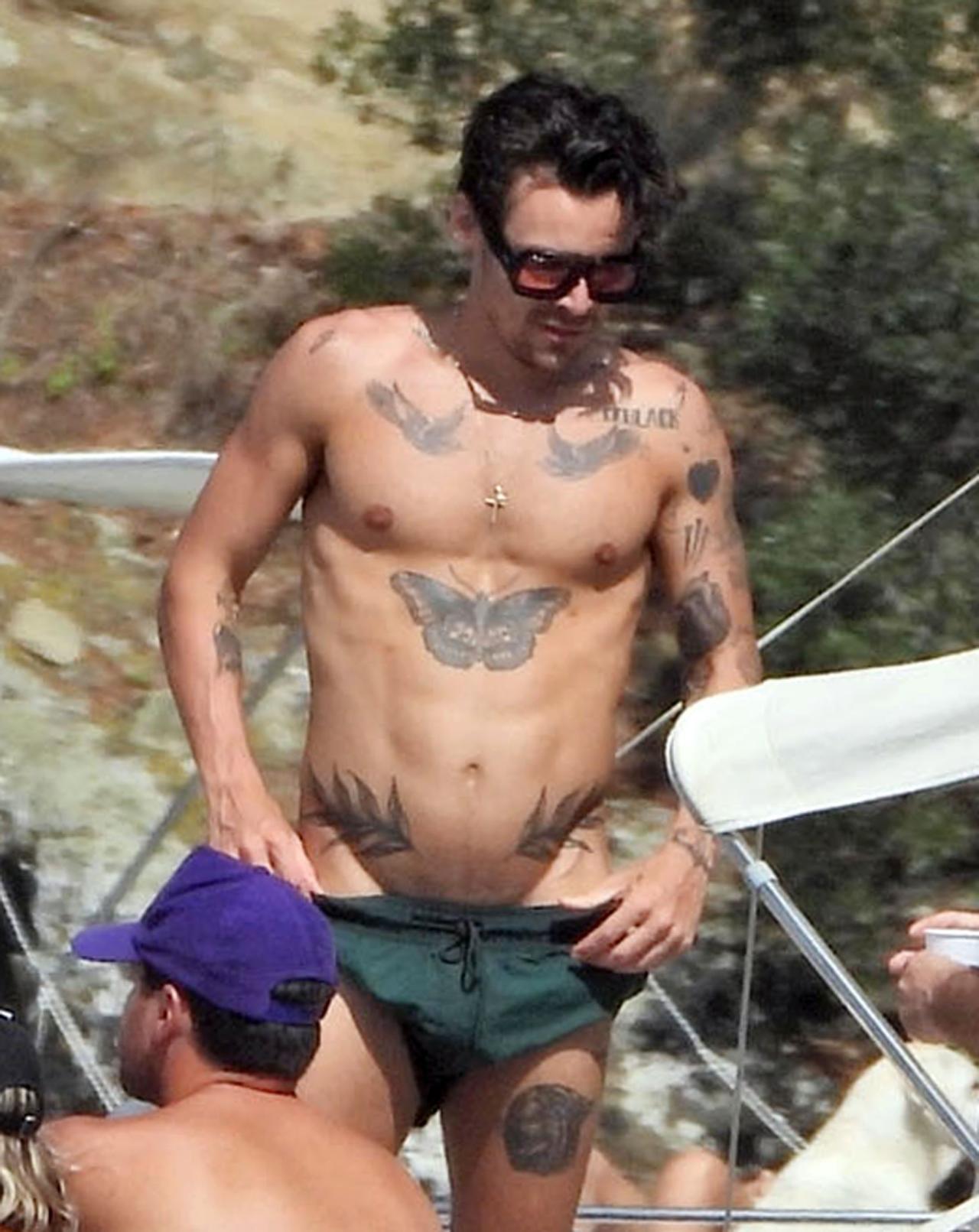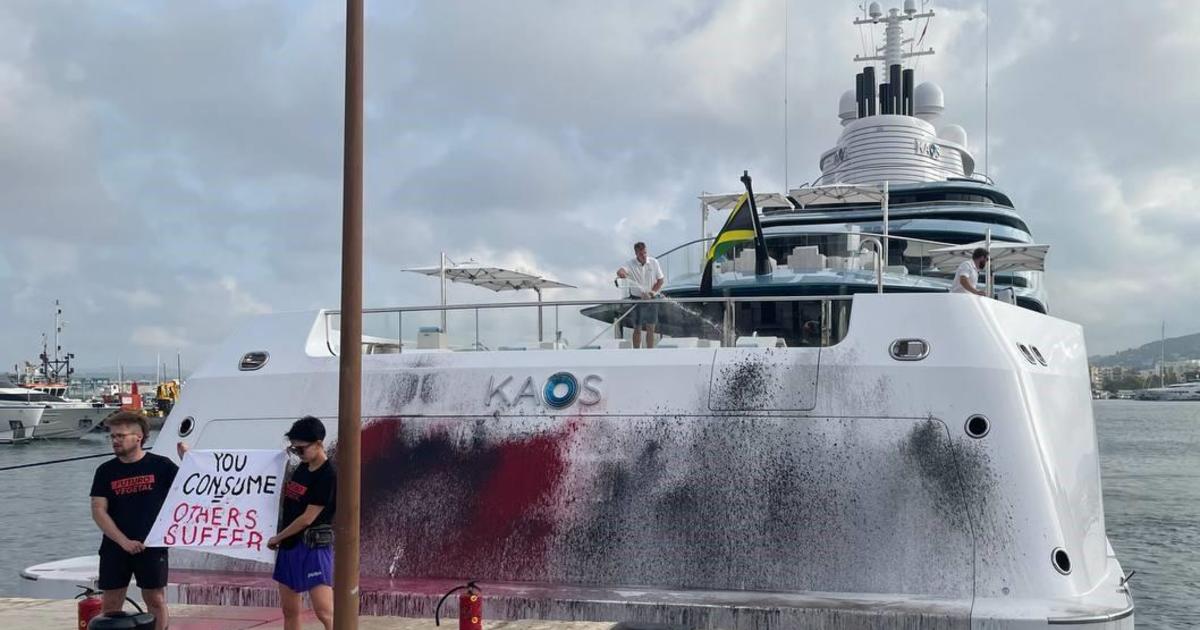In a dramatic display of predator prowess, a solitary killer whale, or orca, has been captured on film hunting and killing a great white shark, leaving scientists astonished by the rare and exceptional nature of the event.
The remarkable encounter took place off the coast of South Africa and was documented by researchers who have been studying the behavior of orcas in the region. Dr. Alison Towner, a shark biologist from Rhodes University, described the incident as “unprecedented,” highlighting the extraordinary predatory skills exhibited by the killer whale.
Typically, orcas in this area have been observed hunting and killing sharks, including great whites, in pairs or groups. However, this particular attack caught researchers off guard as the male orca executed the hunt solo and with remarkable swiftness.
The footage, captured in 2023, showcases the male orca swiftly dispatching the juvenile shark in under two minutes before consuming its liver. This solitary approach contrasts with previous observations of orcas working together to hunt great whites, such as the well-known pair nicknamed Port and Starboard.
Port and Starboard, named for the opposite directions of their dorsal fins, have been documented exhibiting a predilection for extracting and consuming the livers of sharks during coordinated hunts. However, in this instance, Starboard undertook the hunt alone, demonstrating exceptional skill and precision in tackling the formidable predator.
Dr. Luke Rendell, a marine mammal scientist from the University of St Andrews, described the observation as “really beautiful,” emphasizing the ingenuity and proficiency displayed by the orca in taking down its prey. He noted that while it’s not unusual for orcas to target great white sharks due to their substantial food source, the solo nature of this hunt is particularly noteworthy.
The implications of such predatory behavior extend beyond the immediate interaction between orcas and sharks. Dr. Towner highlighted the potential ripple effects on marine ecosystems, including impacts on species like endangered African penguins, which could face increased predation by cape fur seals in the absence of great white sharks.
As scientists continue to unravel the intricacies of these predator-prey dynamics, each new discovery underscores the complexity and interconnectedness of ocean ecosystems. While the motivations driving the behavior remain unclear, the encounter serves as a reminder of the awe-inspiring power and adaptability of marine predators in their quest for survival amidst changing environmental pressures.



















































































